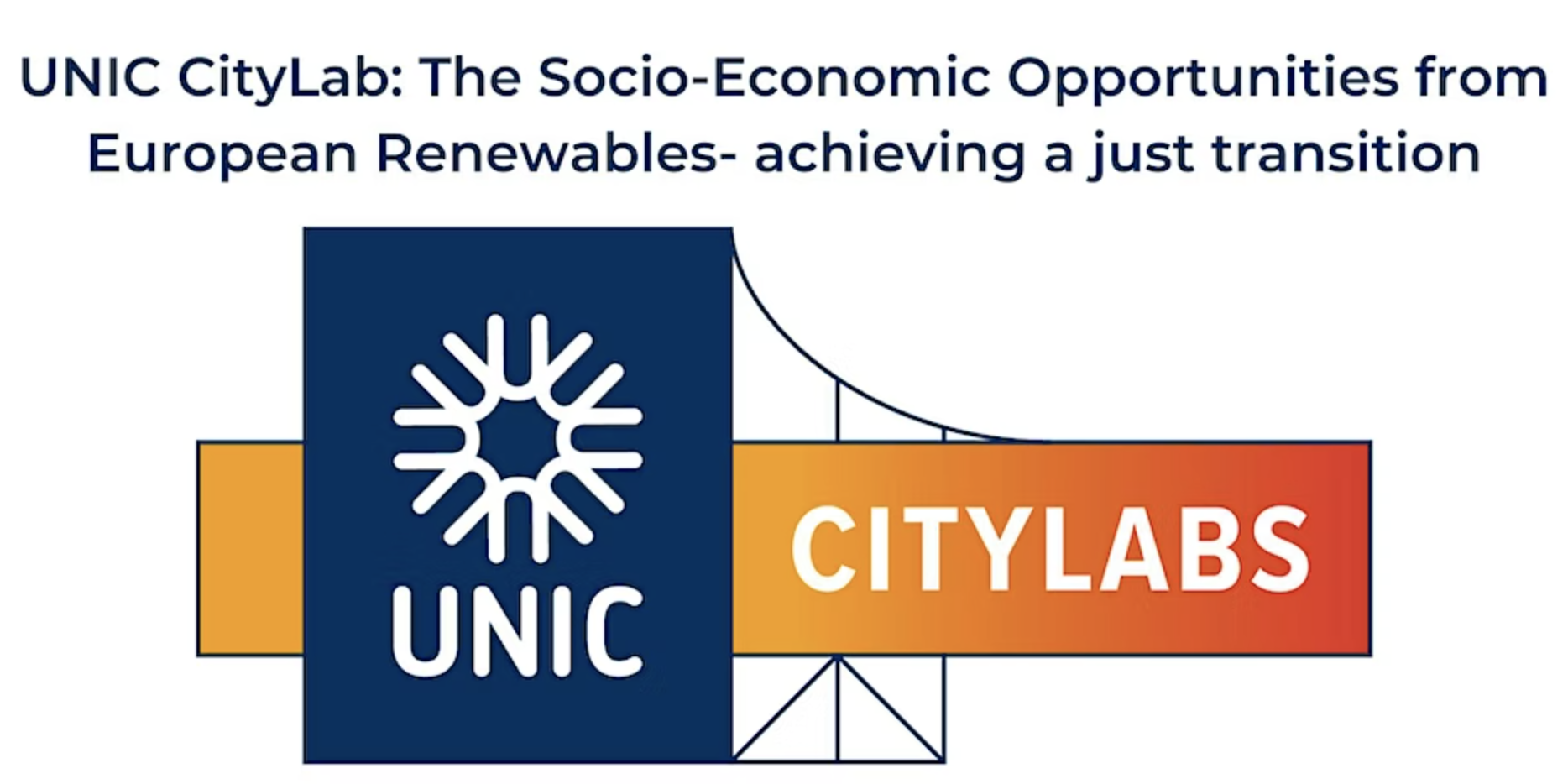
UNIC CityLab: The Socio-Economic Opportunities from European Renewables
This CityLab will investigate different approaches to the socio-economic opportunities related to European renewables.
In a European context, the Renewable Energy Directive (2018) outlines the need for citizens and communities to participate in energy transitions. This includes financial participation and benefit. Critically, due to the pressures on security of supply and geopolitical tensions, structural changes in the ways that our energy systems are built, organized and function are more important than ever. The participation of citizens in renewable energy infrastructure projects is an important mechanism to deliver on emission reduction targets.
Within the EU, how citizens and communities participate in the energy transition is not in any way prescriptive, with different approaches taken in different contexts. Consequently, the social benefits/advantages accrued by citizens through renewable energy and energy infrastructure developments- when present- can take many forms.
This CityLab will investigate different European approaches to socio-economic opportunities related to European renewables and outline ways in which more equitable strategies can be developed, aligning with a just transition approach. Many renewable energy incentive schemes open to citizens take an individualist approach and are in conflict with the principles of a just transition as they can result in the energy poor cross subsidising the energy wealthy, who then have the capacity and resources to actively and directly engage in the energy transition (e.g. solar PV grants, feed-in tariffs).
Alternatively, a range of collectivist approaches can be taken at the national and regional level from establishing sovereign wealth funds to community benefit funding, and community ownership models and crowdfunding to the development of local employment opportunities. The event will consist of a panel discussion with community, NGO, academic, and industry stakeholders, with expertise related to the socio-economic barriers, benefits, and opportunities to achieve a just transition. On from this a workshop will take place.
The aim of this workshop is to co-create possible solutions to advance deepening a pan-European understanding and explore the potential for approaches to the socio-economic opportunities of public engagement in renewable energy infrastructure development, informed by best practice and in recognition of diverse local social, economic, and cultural contexts.
This expert panel discussion and workshop will consider barriers to an equitable socio-economic approach and opportunities for moving forward. It will:
• Share critical reflections on socio-economic dimensions of energy infrastructure development in different European countries.
• Provide an opportunity to meet and network with people from policy, practice and research in this space.
• Initiate knowledge exchange and learning from each other’s contexts towards the potential for common approaches to the socio-economic opportunities of public engagement in renewable energy infrastructure development.
This event is supported by the UNIC European University, an alliance of eight (soon to be ten) Universities and their Cities across Europe, developed to establish a European University of post-industrial cities. The UNIC CityLab initiative brings together students, citizens, academia, and city stakeholders to work together to identify and solve societal challenges faced by post-industrial cities. It is co-organised by the Design Impact Transition Platform of the Erasmus University Rotterdam, which fosters transdisciplinary academic work and the MaREI Centre for Energy, Climate and Marine, University College Cork.
If you have any queries on this event and want to get in touch, please do not hesitate to contact us using the details below
Evan Boyle – E: ei.ccu@elyob.nave
This event will be of interest to:
• Municipalities, Local Authorities, Community Organisations, NGO’s, Industry, Policy Makers, Academia.



